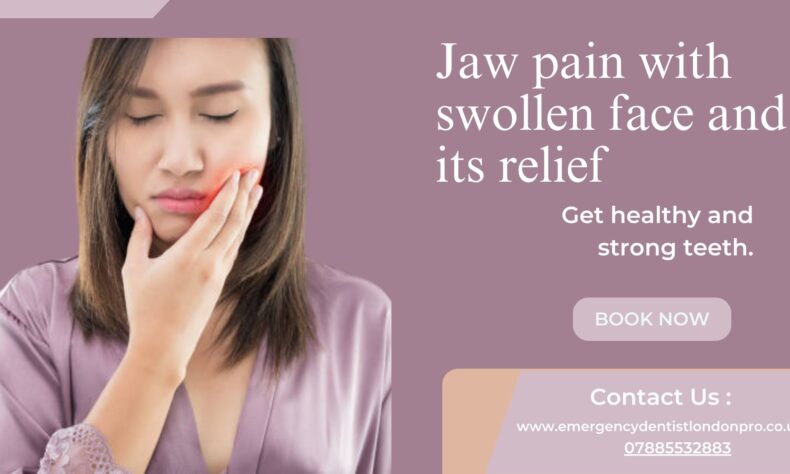
Jaw pain can really put you in misery. In serious stages it not only affects your ability to speak but to eat as well. The treatment to the problem varies widely depending on the cause. Treatment also depends on severity of the pain. Usual therapies include application of ice pack, medications and lifestyle changes. In severe cases surgery is necessary.
There may be several causes behind pain in the jaws. The pain may result from your teeth, ears, sinuses or even the jaw itself. In other words it is little difficult to pinpoint the reason of the pain in this type of cases. The pain may result from the jaw itself or from something else. That is why accurate diagnosis is important to provide the right treatment to jaw pain cases. Let us dig deeper about pain in the jaw in the following sections of the blog post.
Various causes of pain in the jaw
In the majority of jaw pain cases it is seen that an injury or abnormality to the joint of the jaw causes the pain. In many such cases it is seen that the left side of face swollen by the jaw. Other causes that lead to the problem include the following –
Temporomandibular joint and muscle disorder or TMD
TMD affects hundreds and thousands of people affecting nearly 10 million Americans Trustedin the UK and lead them to jaw pain problem. It is one of the most significant causes behind the problem of jaw pain. TMD and TMJ are the one and same. The two are often used interchangeably. It is relevant to mention that temporomandibular joints are basically the hinges joints on each side of the jaw or the face.
TMD jaw pain may result from various causes. Even multiple factors may work at the same time to cause TMD pain in your jaw. The factors behind TMD include the following –
- An injury to the jaw joint
- Pain in the muscles that control movement of the jaws
- A displaced disc that provides cushion during jaw movements
- Stimulation of the jaw joint in excess
- Arthritis of the protective disc
The jaw joints or the muscles that control the movement of the jaw can get damaged because of a number of factors. These factors include –
- Teeth grinding or bruxism
- Trauma to the jaw joint like getting hit in the face during partaking in contact sports
- Involuntary clenching of the jaws during stress and anxiety
There are also other causes of jaw pain but those are less common compared to TMJ or TMD. These causes include the following –
Cluster headaches
Cluster headache is known to cause pain typically around or behind one of the eyes. But the pain can also radiate to the jaw. It is relevant to mention that cluster headache is one of the worst painful types of headaches known in medical science.
Sinus issues
Sinuses are nothing but small cavities that are filled with air. Sinuses are located close to the joint of the jaw. If somehow the sinus gets infected by some virus or bacterium, then infected sinus produces excess mucus. This excess mucus puts pressure on the jaw joint and as a result one feels the pain.
Toothache
In cases of severe dental abscess the infection spreads both far and near the affected tooth. This pain can even radiate in the jaw.
Trigeminal neuralgia
Trigeminal neuralgia is a medical condition. One of the most common causes that leads to this condition compression of the trigeminal nerve. The trigeminal nerve is responsible for providing sensation to the significant portion of the face including both the jaws.
Heart attack
A heart attack does not cause pain only in the chest but it can cause pain in various other portions of the body including the arms, neck, back and the jaw. Women in particular complain of pain in the jaw on the left side of the face during heart attacks. If you ever face this type of symptom just call medical emergency helpline 111 immediately.
Other most common symptoms of the heart attack are –
- Discomfort in the chest
- Profuse sweating
- Nausea
- Shortness of breath
- Feeling like fainting
Heart attack is a major medical condition and can be life threatening if a patient is nor provided proper treatment at the right time.
Getting relief from pain in the jaw
For immediate relief you can apply the following therapies.
- Application of moist heat or cold pack – Preparing an ice pack is easy and it provides considerable relief from jaw pain. Take a plastic bag and fill it up with ice. Then wrap the plastic bag in a thin piece of cloth. Now your ice pack is ready. Apply it to the jaw along with the other affected parts of the face for about ten minutes. Then stop applying it for ten minutes before reapplying again. Continue this at least four to five times to get some positive effect. The easiest way to apply moist heat is soak a washcloth in warm water. Wring out the excess water and apply the cloth to your face. Make sure the pack is hot but not enough hot to cause burns or blisters. Application of moist heat helps relaxing the muscles and in the process it relieves the pain. It may be necessary to soak the washcloth in warm water repeatedly for this therapy. Heat and ice packs are readily available at pharmacies. You can even get those online. Both cold and heat packs should always be covered in a cloth when applied. This prevents burning the skin. If your cold or hot pack is too cold or hot remove it. Use it only when its temperature is bearable for your skin.
- Pain killers or analgesics that are available over the counter – Standard painkillers like ibuprofen and acetaminophen can give considerable relief from jaw pain.
- Massaging the affected joints – Dentists at Emergency Dentist London Pro suggest even gently massaging the affected joint prove helpful to get relief. Press the area of soreness with your index and middle fingers. Rub for about 5 to 10 times in gentle circular motion then try to open the mouth. Repeat this overall cycle. Along with this you should also massage the muscles on the side of the neck. This he1lps relieving tension.





